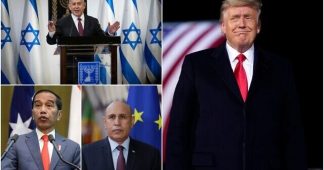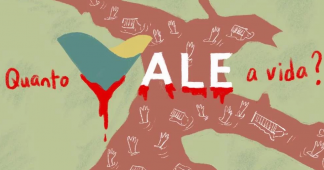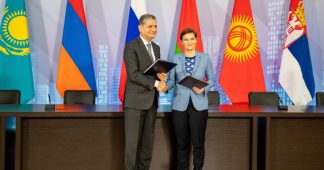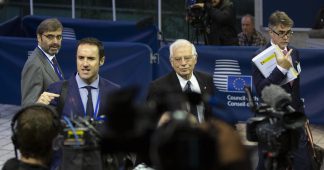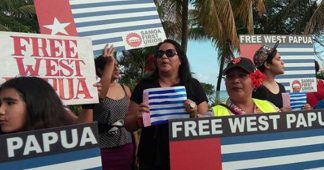November 18, 2021
JAKARTA, COMPASS.com – President Joko Widodo (Jokowi) stressed that he will stand before the World Trade Organization (WTO) for the European Union (EU) in connection with the lawsuit against the Indonesian government’s policy banning nickel exports.
“Don’t drag us to the WTO because we’re going to stop (with the export of nickel). We’ll fight it one way or the other,” Jokowi said at the Kompas 100 CEO Forum in Jakarta, Thursday (11/18/2021).
The reason is that Indonesia can bring many benefits from the cessation of nickel exports alone. The head of state estimates that if nickel ore exports are halted, there will be benefits of up to 20 billion US dollars or the equivalent of Rp. 284 trillion (exchange rate of Rp. 14,200 per US dollar).
In fact, all natural resources are made from raw materials (raw material), such as bauxite and copper, if exports to other countries are stopped, Indonesia could reap a profit of $35 billion.
“Right now, our export jump is higher than this. In October alone it was $16.5 billion. By the end of the year, I estimate it could reach $20 billion just if we stop nickel. estimate of $35 billion,” he said.
The reason for the government to stop shipping nickel ore is because it wants to create jobs. But, Jokowi said, Indonesia will not shut itself down if there are other countries willing to invest and produce.
Get information, inspiration and insight by e-mail you.
Register e-mail
But he doesn’t want other countries to want to control the country’s raw materials that can produce this energy.
“We don’t lock ourselves up, we’re open. But if we’re told to send commodities, stop, don’t think Indonesia will send commodities. We’ll stop nickel in particular. Next year, we can stop bauxite, so we can can create jobs. Next year again, stop copper,” said Jokowi.
“Why are we doing this? We want added value, we want to create as many jobs as possible. Like it or not, they have to to invest in Indonesia or ber partner with us. The private sector can do it, please through state-owned companies,” the president said.
As a follow-up to the European Union’s lawsuit over Indonesia’s policy to ban the export of raw nickel ore products (DS 592), the WTO dispute panel recently held a virtual hearing before the WTO panel in Geneva, Switzerland.
In a series of hearings held in November 2021, the panel examined the EU’s procedural and defense documents submitted by Indonesia. This series of hearings begins with the presentation of preliminary views and concludes with closing views of the parties to this dispute.
“In its lawsuit, the EU alleges that Indonesia has violated WTO members’ commitment to provide the broadest access to international trade, including raw nickel products that clearly violate Article XI:1 of the 1994 GATT,” the statement said. Deputy for Investment and Mining Coordination at the Coordinating Ministry of Economic Affairs Maritime Affairs and Investment, Septian Hario Seto through his press statement.
Furthermore, the Indonesian defense team, led by Deputy Trade Minister Jerry Sambuaga, has prepared a rebuttal to the lawsuit filed by the EU by explaining why the policy can be justified under WTO provisions and in accordance with the reasons for the establishment of the WTO in 1995.
Indonesia’s policy is a defense of the future of Indonesia’s very limited natural resources. This nickel resource is not a renewable natural resource and its use should be judicious in order to have a positive effect on the well-being of all Indonesian people.
“Nickel is the material of the future, Indonesia feels the need to maintain continuity for Indonesia’s future. For that reason, Indonesia is progressing to prepare its defense against the EU,” Seto said.
Published at 1seo.info
We remind our readers that publication of articles on our site does not mean that we agree with what is written. Our policy is to publish anything which we consider of interest, so as to assist our readers in forming their opinions. Sometimes we even publish articles with which we totally disagree, since we believe it is important for our readers to be informed on as wide a spectrum of views as possible.
